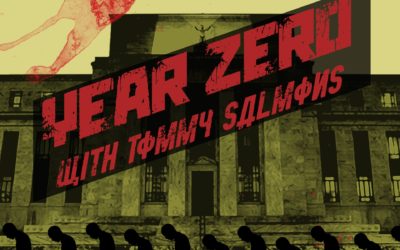On the night of Trump’s inauguration, he approved a raid on al-Qaeda in a village in central Yemen. Two Americans were killed in the raid: Chief Petty Officer Ryan Williams and 8-year-old Nawar Anwar al-Awlaki. Nawar was hit in the neck with a bullet and died in her grandmother’s arms. An official who later described the raid said, “almost everything went wrong.”
The main stream media was largely too distracted by the scandal surrounding the size of Trump’s inauguration crowd to ask questions about Nawar and Ryan’s deaths. Journalist Iona Craig, was able to travel to the village where the raid occurred, reported that the village was not aligned with al-Qaeda, but fighting on the side of the US support Saudi coalition in the Yemen Civil War. US officials later admitted they did not receive any significant intelligence from the raid.
Another early move for Trump was to reinstate precision-guided munition sales to Saudi Arabia. Late in Obama’s Presidency, Obama blocked a sale of weapons to Saudi Arabia as a punishment for Saudi massacring over 150 people at a Yemeni funeral.
Other than those small changes Trump’s policy on Yemen has been the same as Obama’s: provide the Saudi’s with the military support and diplomatic cover needed to enforce Saudi’s will over the people of Yemen or to kill them all.
The Trump policy has also continued the false narrative of framing the Yemen Civil War as a proxy war between Iran and Saudi Arabia. The main stream media frequently runs with this story without question. The Trump Administration, led by US Ambassador to the UN Nikki Haley, is using this narrative to demonize Iran, push for the country’s isolation, and possibly war.
Ambassador Haley has attempted to exploit a few missiles fired at Saudi Arabia by the Houthi to allege that Iran is violating the P5+1 Nuclear Agreement. Haley claims that the missiles were provided to the Houthi by Iran. However, expert weapons inspector Scott Ritter was able to debunk Haley’s lies.
Indiscriminate airstrikes from the Saudi coalition are using US made bombs to destroy schools, hospitals, markets, roads, factories, bridges, airports, ports, and homes. While the exact number of civilians killed by the fighting in Yemen is unknown, Yemeni journalist Nasser Arrabyee claims that 70,000 civilians have been killed. The Saudi airstrikes have become so brutal that by the end of 2017 a UN official said he was “deeply disturbed” by the airwar.
The famine in Yemen raged through 2017. A blockade of the country prevents food, medicine, fuel, and water treatment supplies from reaching the nearly 20 million people in need of humanitarian assistance. The Saudi’s destruction of critical civilian infrastructure is exasperating the famine.
In late April, a cholera epidemic broke out. An estimated 1,000,000 Yemeni will contract the disease in 2017. Like the famine, the outbreak has been fueled and made more deadly by US and Saudi actions in Yemen. In 2017, Saudi Arabia expanded the blockade to include humanitarian aid. Recently, Trump called for Saudi Arabia to allow some aid to enter Yemen, but has Saudi has not listened.
The US support for Saudi Arabia in Yemen has made the US de facto allies with Yemen’s Islamic State affiliate and Al-Qaeda in the Arabian Peninsula; as the jihadists, along with US weapons makers, continue to be the few beneficiaries of the US and Saudi intervention into Yemen.
Trump has also continued to target the jihadists groups with drone strikes and raids. The US officials often claim these raids and strikes kill top ranking jihadists. However, the military operations do little to deter jihadists gains. Yemeni sources often challenged the legitimacy of US official claims. Local sources often explain that civilians were killed by the American strikes, not jihadists.
The crisis in Yemen has received some political attention. Several Congressmen attempted to invoke the War Powers Resolution to end the US involvement fighting on the Saudi side in the Yemen Civil War, but House leadership defeated the bill by asserting US actions in Yemen did not rise to the level needed to invoke the War Powers Act.
In early December, the anti-Saudi alliance of the Houthi and former Yemen President Saleh disintegrated. Saleh allied with the Saudi coalition but was quickly killed by Houthi fighters. This seemingly leaves Saudi Arabia without a figurehead to rally behind in Yemen, as the current “president” of Yemen remains under house arrest in Saudi Arabia.
When the Obama administration enabled Saudi’s war in Yemen in March of 2015, they acknowledged it would be “long, bloody and indecisive.” The Trump administration must draw the same conclusion as we enter 2018.





